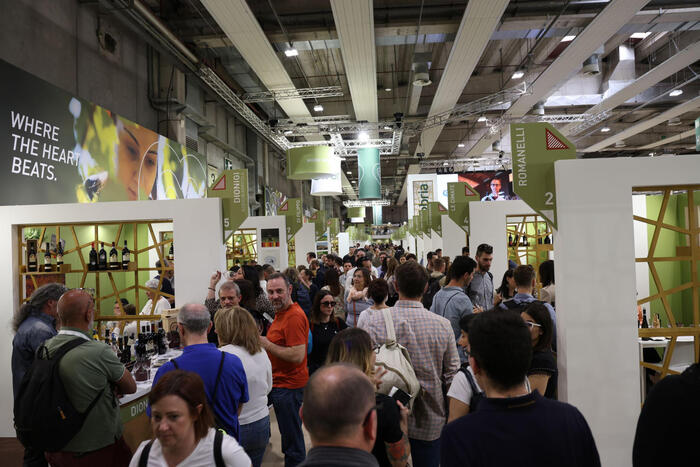The City of Buenos Aires announced new investments in the Wine District to consolidate this enogastronomic pole as a national and foreign tourist attraction.
A little over a year after the thematic area of wine was approved, created by law of the Buenos Aires Legislature on September 2, 2021, there are
seven new projects underway
with an investment of 15 million dollars.
The Wine District covers the geographical area between
Villa Devoto, Villa del Parque and La Paternal.
The approved layout includes the polygon comprised by the streets October 12, Espinosa, Biarritz, Avenida San Martín, Carlos Antonio López, Avenida General Paz, Cervantes, Tinogasta, Emilio Lamarca, Ricardo Gutiérrez, Alfredo R. Bufano, Terrero, on both sidewalks .
Wine bars, cellars and tasting centers, training and careers, marketing offices, showrooms, showrooms and gastronomic experiences: anyone who invests in the creation of this type of space linked to wine will be able to receive tax benefits
.
The
new district and the transformation it implies for the neighborhood
generated opposition from a group of residents,
who last year called attention to the changes.
The main complaints have to do with the loss of identity and the increase in circulation in the area, with the consequence of traffic jams and the lack of parking spaces.
This position clashes with the official decision and with another group of residents and merchants, who defend the project because they think it revitalizes the neighborhood and by attracting visitors it also serves to
reactivate all the shops, not only those dedicated to wine.
Watch House.
Alejandro Vigil, "the Messi of wine", will arrive at Villa Devoto with his proposal.
Visiting Mendoza during the Harvest, the Minister of Economic Development and Production of the City of Buenos Aires,
José Luis Giusti
, defended the initiative and announced the
seven projects that are being added.
On the list of new residents of the Wine District are: Mundo wine, La Vinatería, Cavas Saez, Universo Vigil, Esquina malbec, Luján cavas and La Panera rosa wines.
"There are two that are already working
. And the other five are under construction or in the process of being remodeled," Giusti said.
The minister said that these 7 projects mean an investment of 15 million dollars.
And he announced that there are
another 9 projects
that are looking for the location and finishing defining the investments.
"The idea is to end this year with 15 food and wine ventures in the Wine District," he said.
The restaurants, bars in the area, especially Villa Devoto, are adding services and activities linked to wine.
This is the case of Tiempo de Sabores, which has a restaurant and associated with a winery to add wine tastings and courses.
While projects are added to the Wine District, a group of Devoto residents made complaints last year.
"We want to continue convincing the wineries of the benefit of this district, which is growing a lot gastronomically. That those foreign tourists
who do not come to Mendoza
live the experience of knowing and tasting the wines of the different regions," explained Giusti.
The investor in the Wine District receives a
70% exemption from the payment of gross receipts.
Mendoza is the main producing province, with 80% of the wine, but quality projects are expanding in other provinces with wine production, such as Salta, San Juan, Jujuy, Río Negro, Neuquén, Tucumán, La Rioja, Córdoba and Buenos Aires. among other.
During the visit of the CABA Economy team to Mendoza, there were meetings with business organizations and cooperatives, such as the Argentine Vitivinícola Corporation, the Federation of Vitivinícolas Cooperatives, and Bodegas de Argentina.
"The Buenos Aires government is related to the wine-producing provinces so that the City can be the starting point or
kilometer zero of the Wine Route in Argentina
, with the aim of strengthening and promoting the industry nationally and internationally, becoming a the window of one of the most characteristic and representative products of the regional economies”, said the minister.
The City delegation was also made up of Guillermo Laje, president of Banco Ciudad;
Carlos Macchi, Undersecretary for Cooperation for Economic Development and Production, and Carlos Rapisarda, Undersecretary for Real Estate Administration.
Vigil Wine Club
The oenologist Alejandro Vigil and his wines.
Photo.
Instagram.
The winemaker
Alejandro Vigil,
multi-awarded for being responsible for the wines of Catena Zapata and El Enemigo, has already begun work on his new restaurant in the Wine District, which will be the first landing of his brand in the City of Buenos Aires.
The
Universo Vigil
chain of restaurants and wine bars has 15 locations, most of them in Mendoza, but it has a Chachingo Craft Beer restaurant at the Ezeiza airport and another in Neuquén.
In addition to reaching the Wine District, they are closing an agreement for three new Vigil Wine Club locations: in the new Ezeiza terminal, in Miami and in San Pablo.
The restaurant that the so-called
"Messi del Vino"
will open in Villa Devoto will be at 4264 Gualeguaychú street, corner of Havana.
The work, which will take 18 months, will be inaugurated in the last quarter of 2024. It includes a restaurant and wine bar.
"It will be a gastronomic space on two floors and with rooms with capacity for wine fairs, tastings and private meetings," Maximiliano Mastrángelo, the captain of the executive team of Universo Vigil,
told Clarín
.
A neighborhood linked to wine
Villa Devoto is an area with a wine-producing past.
The Buenos Aires to the Pacific Railway passed through there, then the San Martín Train, which was key to the activity, since it took production
from Mendoza to the rest of the country and also to the Port of Buenos Aires.
In this area there is also the La Paternal station, inaugurated in 1887, to which bulk wine arrived in tank cars.
And a few meters away, at Avenida Warnes 1894, the
Federation of Wine and Related Workers and Employees (FOEVA) continues to function.
In turn, wine establishments and bottling plants were installed next to these roads, which closed after the enactment of the 1984 Bottled at Origin Law. Precisely one of the objectives that are added is to recover those lands and install spaces there for
activities related to viticulture, with a place for exhibitions.
In Villa Devoto there are a dozen wine bars and wine bars.
One of these places, the wine house of the Tombetta family -located in San Martín at 6,900-, was founded in 1932 and is one of the oldest in the business in the City.
In the area, for several years, events such as the "Night of Wines" have been organized regularly, promoted by the Federation of Commerce and Industry of the City (FECOBA),
The City already has
five economic districts
that depend on the Ministry of Economic Development and Production: Technological (Parque Patricios and Nueva Pompeya neighborhoods), Design (Barracas), Audiovisual (Chacarita, Villa Ortúzar, Paternal, Palermo and Colegiales), and Arts (La Boca, San Telmo and Barracas) and Sports (Villa Lugano, Villa Riachuelo and Villa Soldati).
Mendoza.
Correspondent
SC







